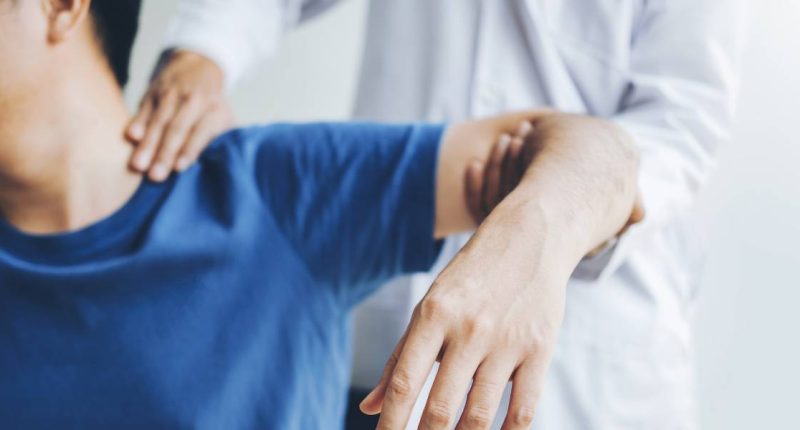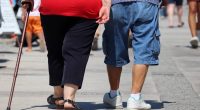Consistently high blood sugar can trigger the development of painful frozen shoulder, new evidence shows.
Scientists from the University of Exeter have found that untreated high blood sugar can also cause Dupuytren’s disease and carpal tunnel syndrome – an agonising wrist condition.
Affecting people with diabetes, high blood sugar is associated with foot and leg-related problems, such as painful ulcers and amputations.
Otherwise known as hyperglycaemia, untreated high blood sugar can also trigger muscle and bone complications in the upper body, the researchers have said.
During the study, the team of scientists assessed the genetic information of 370,000 people in the UK Biobank study.
They found that the participants struggling to control their blood sugar were more at risk of developing four upper limb problems – frozen shoulder, carpal tunnel syndrome, Dupuytren’s contracture and trigger finger.
Frozen shoulder occurs when the connective tissue enclosing the joint thickens and tightens, leading to pain and stiffness of the shoulder. Carpal tunnel syndrome is where pressure on a nerve in your wrist causes pain and numbness in your hand and fingers.
Dupuytren’s contracture is when one or more fingers bend in towards your palm. Trigger finger is a condition that affects one or more of the hand’s tendons, making it difficult to bend the affected finger or thumb.
People with consistently high blood sugar are more likely to have higher levels of advanced glycation end products (AGEs) – a substance which forms when proteins, fats and DNA mix with sugars in the bloodstream.
According to the study, a build-up of AGEs causes upper limb problems because they damage and thicken the tendons, joints and connective tissues.
First author Dr Harry Green said: “Our study consistently demonstrates that having high blood sugar over the long term causes these upper limb conditions.
“We can now classify them as diabetes complications.
“Clinicians treating people with diabetes should be aware of these complications in clinic, so they can advise on the best treatment pathways.”




